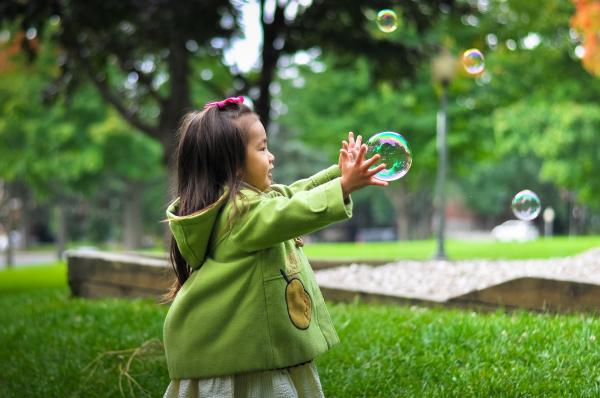By Danielle Galvin
During a game of Barbies with my preschool aged daughter, she leaned in to me and said “Pretend the coronavirus is around and the friends can’t see each other”.
I was quite struck by it, but not for the reason you’d think.
Recently, I’d been reading some research out of the US about the importance of playing with your children during the COVID-19 pandemic.
When I went back to find it I couldn’t find the article I’d read.
But in essence, it was saying that the unstructured play is critical during these times, it’s how children process the world around them.
And I was seeing it before my eyes.
Through our creative play and time together, she was helping to make sense of this crisis, she mentioned a few times that the Barbie friends couldn’t see each other right now but would be able to again some day.
I realised in that moment how important play is for her.
In a recent release from the American Psychological Association, a number of experts were quoted about the benefits of this kind of play.
During a stressful time, it’s a way for kids to relieve stress, to make sense of the complicated sometimes traumatic world they’ve found themselves in.
The International Play Association has also released a booklet to help parents and carers during the pandemic.
President Robyn Monro Miller President said there’s a need to support children’s right to play at this time.
“The International Play Association recognises playing as a basic and vital part of the pleasure of childhood.
“We also see it as an essential part of all aspects of children’s development.
“During crisis, play has a significant therapeutic role, helping children recover a sense of normality and joy.”
The IPA says during a crisis, playing is your child’s way to stay emotionally healthy, stay physically active, relax and forget about worries, make sense of any new experiences and changes in their world and cope with feelings that are difficult or frightening.
Children’s lifestyle expert Patty Sullivan told Global News in Canada play is more than just ‘fun’.
“Research has actually shown play can help you to decompress, to relieve anxiety, and to help you stay more positive, and this wasn’t just for kids this was for adults too,” she said.
Similarly, the American Academy of Paediatrics advises getting children outdoors – whether that’s the backyard or outside on a walk.
“Getting outside provides more than a fun break for children and teens. It is also good for their physical and mental health and development.
“Children play harder outdoors than indoors. Especially without the structure of preschool, school or afterschool activities, children especially need opportunities to move.”








